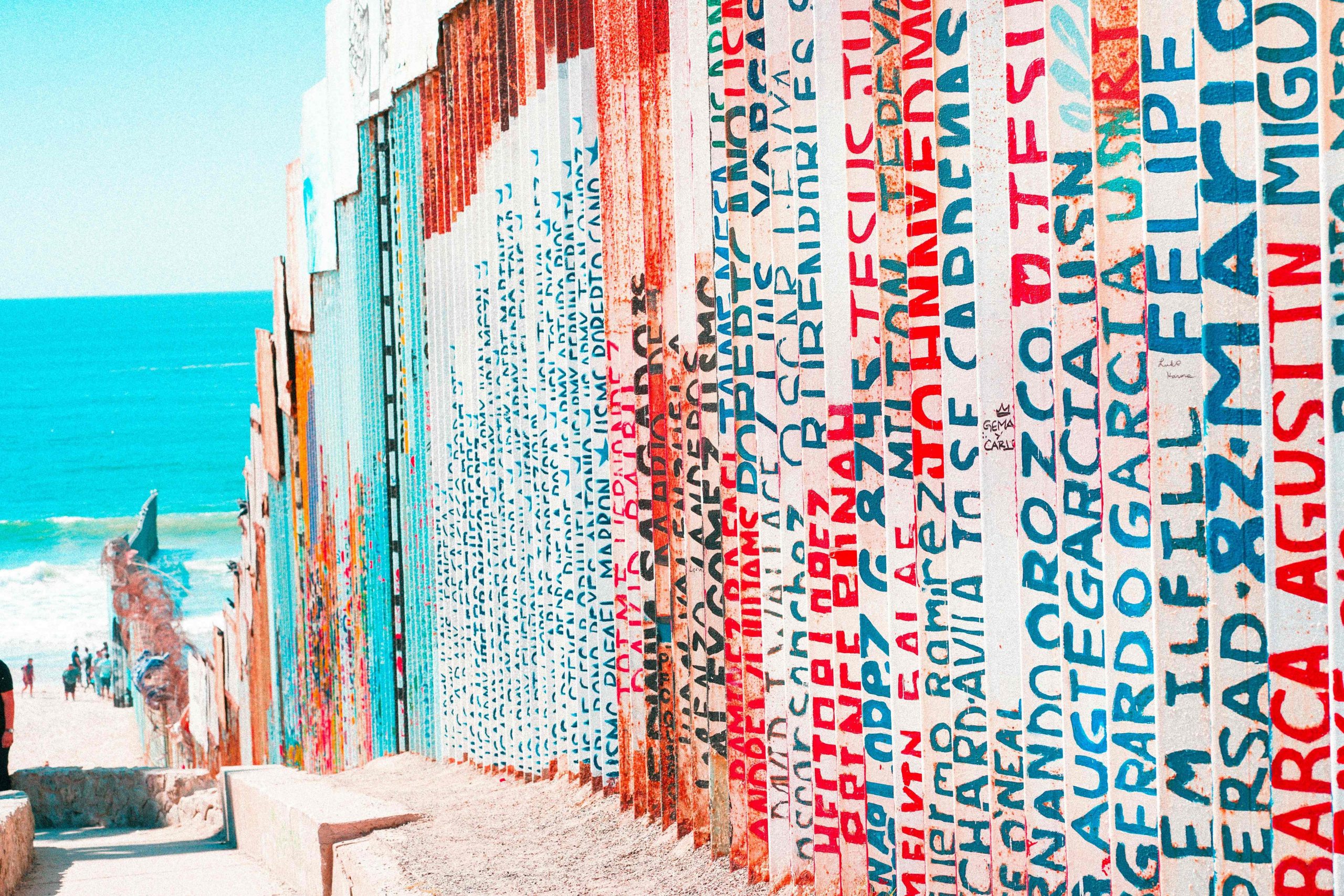Photo by Barbara Zandoval/Unsplash
Content warning: homophobia, transphobia, violence, mentions of death
Whether through proposed restrictions, new waves of immigration, or the continued unjust vilification of migrants, stories of U.S. immigration are constantly circulating in many different forms of media. However, a topic that frequently remains unnoticed by a majority of the public is that of the immigration of LGBTQ+ people and the specific struggles that LGBTQ+ migrants face.
LGBTQ+ migrants from across Central America and other parts of the world travel to the United States to seek asylum within US borders. The journey is long and extremely dangerous as it involves crossing the borders of multiple countries. Migrants also face uncertainties around food and shelter and the risks of being robbed or scammed. Moreover, arriving at the border is not the end of this journey; once there, migrants still need to apply for asylum.
This process often takes years due to a severe backlog of requests. According to The Conversation, as of January 2024, one million asylum cases are awaiting review without guaranteed approval. It is possible to apply for asylum if one is persecuted for their sexual orientation in their home country; however, there is little data on how many apply for and receive asylum for this reason.
Despite the dangerous nature of the asylum-granting process, people have no other choice.
Queer individuals continue to travel to the United States because of the increasingly hostile and homophobic environments of their home countries. For many, to stay would mean to be killed. According to ABC News, hundreds of LGBTQ+ migrants traveled to Tijuana, Mexico for the chance to apply for asylum in the United States in 2018 alone. The 2017 Amnesty Report determined Mexico and Honduras to be “deadly and discriminatory for LGBT people.” While the conditions may not be as bad now as they were then, these countries are still in no way completely safe for LGBTQ+ individuals.
Many make this journey to the United States for even the smallest chance of safer living conditions. Entering the United States illegally is also not an option for many; to be caught crossing the border would mean being deported back to their hostile home country and risking a death sentence. The chances of obtaining asylum are slimmer if someone has already attempted to illegally cross the border.
However, queer migrants are not alone in this journey.
A reprieve from the constant dangers faced by queer migrants is the Casa Arcoiris, or Rainbow House, in Tijuana, Mexico, a purposefully unassuming shelter co-founded by Andrea González Vera. It provides a temporary shelter for queer migrants who are in the process of applying for asylum in the United States. At the house, queer migrants are shown video tutorials about the process of getting an interview to ask for asylum.
Another organization providing support is the LGBT Asylum Task Force, established in 2008. This group provides queer migrants with “housing, food, and connections to legal, educational, medical, and mental health resources at other local agencies.”
Many individuals in Casa Arcoiris have been waiting for months and are desperate and afraid. These emotions are heightened by migrants’ awareness of their vulnerability, even within the walls of the temporary sanctuary. In January of 2024, Casa Arcoiris was vandalized; a homophobic slur was graffitied on the side of the house. In an interview with NPR, a queer Guatemalan migrant staying at the house stated that seeking asylum felt like “playing the lottery with your life.”
Unfortunately, the road to asylum may become even more difficult.
Lawmakers are debating enacting tougher restrictions for asylum seekers in a combined border security and foreign aid package the Senate is currently deliberating on. In January of 2024, Republicans stopped President Joe Biden’s initial proposal to approve around 14 billion dollars to pay for asylum officers, immigration judges, and more border security. Instead, they threatened a government shutdown if tighter restrictions were not placed on border security.
Many more changes were proposed following the initial proposal, such as heightening restrictions on who can receive asylum. The H.R. 2, the Secure the Border Act bill would completely ban undocumented immigrants in the United States from receiving asylum, subjecting them to deportation instead. Those seeking asylum would have to present overwhelming evidence that they were persecuted in their home countries during their first interview with a judge, and migrants would not be allowed to stay with a U.S. sponsor while seeking asylum.
These proposed changes would severely limit queer migrants’ chances of receiving asylum and endanger their lives.
It is absolutely vital that immediate attention is brought to this topic, because to fight for queer rights is to fight for queer rights for everyone. There are ways to aid queer migrants in their fight for safety. The LGBT Asylum Task Force has several ways to get involved in helping queer migrants beyond donating. In the upcoming elections, it is extremely important not only to vote but also to research which candidates to support.
We, as a community, need to assist in queer migrants’ continuous fight for safety. We cannot continue to turn a blind eye to the plight of our queer siblings. Reach out to lawmakers and make your voice heard. No one is powerless.
Credits:
Author: Melissa Vera (She/They)
Copy Editors: Rhea Morita (They/Them), Emma Blakely (They/She/He)

